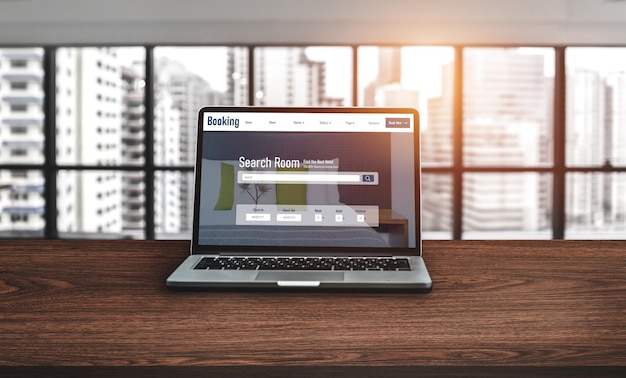Unclaimed Benefits: A Stateside Guide to Claiming What’s Yours

Anúncios
Don’t Leave Money on the Table: A Guide to Unclaimed State Benefits explores often-overlooked funds and programs available to residents of the United States, helping you navigate the process of identifying and claiming what is rightfully yours.
Are you leaving money on the table? Each year, billions of dollars in state benefits go unclaimed. Don’t Leave Money on the Table: A Guide to Unclaimed State Benefits is designed to help you understand and access these resources.
Anúncios
Uncovering the Landscape of Unclaimed State Benefits
Many individuals are unaware of the various state-level benefits and funds that are available to them. These unclaimed assets can range from forgotten bank accounts to uncashed checks, and even insurance payouts. Understanding the landscape of these benefits is the first step in reclaiming what is rightfully yours.
Types of Unclaimed Property
Unclaimed property comes in various forms. From financial assets to tangible items, knowing what to look for can increase your chances of finding unclaimed funds.
Anúncios
- Dormant Bank Accounts: Checking and savings accounts that have been inactive for a certain period.
- Uncashed Checks: Paychecks, vendor payments, and other types of checks that were never cashed.
- Insurance Payments: Refunds, dividends, or settlements from insurance companies.
- Stocks and Bonds: Securities certificates or dividends that have been forgotten or lost.
Why Property Goes Unclaimed
Several factors contribute to property going unclaimed. Some common reasons include incorrect addresses, forgotten accounts, and lack of awareness about available benefits.
Many people move without updating their contact information with banks or other financial institutions. This can lead to checks and statements being sent to old addresses, resulting in unclaimed funds. Additionally, individuals may simply forget about old accounts, especially if they are small or inactive. A lack of awareness about these unclaimed benefits also plays a significant role, as many people are unaware that these funds exist or how to claim them.
In conclusion, understanding the types of unclaimed property and the common reasons behind it is crucial for beginning your search. By being aware of these factors, you can take proactive steps to ensure that you or your loved ones are not missing out on available benefits.
Navigating State-Specific Databases and Search Tools
Each state has its own unclaimed property program, and navigating these systems can seem daunting. Fortunately, most states offer online databases and search tools that make the process more manageable. Learning how to effectively use these resources is essential for a successful search.

Using Online Databases
Most state unclaimed property programs provide online databases that allow you to search for your name. These databases are updated regularly and include a wide range of unclaimed assets.
- Enter Your Name: Start by entering your full name and any variations you may have used in the past.
- Try Different Spellings: If you’ve legally changed your name, try searching both your current and former names.
- Include Middle Initials: Adding your middle initial can help narrow down the results and improve accuracy.
Tips for Effective Searching
Searching for unclaimed property requires patience and attention to detail. Using these tips can make the process more efficient and effective.
Be sure to search not only your name but also the names of family members, especially deceased relatives, as they may have unclaimed property that you are entitled to. Additionally, check for common misspellings of your name or variations that might have been used on old accounts. It is also wise to search using both current and former addresses, as unclaimed property could be tied to a previous residence. Persistence is key; checking periodically, as databases are frequently updated, can help you discover new listings.
By understanding how to navigate state-specific databases and implement effective search strategies, you can increase your chances of reclaiming any forgotten or lost assets. Utilizing these tools and tips will help you conduct a thorough and successful search.
Eligibility Criteria for Claiming Unclaimed Funds
Before you get too excited about potentially finding unclaimed funds, it’s important to understand the eligibility criteria for claiming them. Each state has its own specific requirements that you must meet to be eligible to receive the funds.
Proof of Ownership
The most important requirement is demonstrating proof of ownership. This typically involves providing documentation that links you to the unclaimed property.
- Valid Identification: A government-issued photo ID, such as a driver’s license or passport.
- Social Security Number: Your Social Security number may be required for verification purposes.
- Address Verification: Documents that confirm your current and former addresses, such as utility bills or lease agreements.
Legal Authority to Claim
In some cases, you may need to prove that you have the legal authority to claim the funds on behalf of someone else.
Claiming funds on behalf of a deceased relative often requires providing legal documentation, such as a will or death certificate, demonstrating your right to act as the executor of the estate. If you’re claiming as a legal guardian for a minor or an incapacitated adult, you’ll need to submit guardianship papers or a power of attorney. If the original owner is a business, you may be required to provide documentation proving your authority to represent the company, such as articles of incorporation or a letter of authorization.
Understanding and meeting the eligibility criteria is essential for a successful claim. Make sure you gather all necessary documentation to prove your ownership or legal authority to claim the unclaimed funds. This will help streamline the process and increase your chances of a successful claim.
The Claim Process: Step-by-Step Guidance
Once you’ve identified unclaimed funds and confirmed your eligibility, the next step is to initiate the claim process. This typically involves completing a claim form and submitting the required documentation. Here’s a step-by-step guide to help you navigate the process.
Completing the Claim Form
The claim form is the first document you’ll need to complete. Ensure that you provide accurate and complete information to avoid delays in processing your claim.
Begin by providing your personal information, including your full name, current address, phone number, and email address. Next, include any details you have about the unclaimed property, such as the name of the institution that held the funds and the last known address of the owner. Ensure you attach all required supporting documents, like copies of your driver’s license, Social Security card, and any documents proving your connection to the property. Sign and date the form accurately before submitting it to the unclaimed property office.
Submitting Required Documentation
Gathering and submitting the necessary documentation is a crucial part of the claim process. Failure to provide the required documents can result in your claim being denied.

Commonly required documents include a copy of your government-issued photo ID to verify your identity, proof of your Social Security number, such as a Social Security card or a W-2 form, and documents verifying your current and any former addresses, like utility bills or lease agreements. If you’re claiming on behalf of a deceased relative, include a copy of the death certificate and documents proving your relationship to the deceased, such as a will or birth certificate. If claiming as a legal representative, like a guardian or power of attorney, provide copies of the relevant legal documents establishing your authority.
By following these step-by-step instructions and gathering all necessary documentation, you can navigate the claim process more efficiently and increase your chances of successfully reclaiming your unclaimed funds.
Common Pitfalls and How to Avoid Them
Navigating the world of unclaimed state benefits can be complex, and it’s easy to make mistakes. Here are some common pitfalls to watch out for, along with tips on how to avoid them.
Scams and Fraudulent Offers
Be cautious of scams and fraudulent offers promising quick access to unclaimed funds. Always verify the legitimacy of any communication you receive.
Scammers often use tactics such as unsolicited emails or phone calls asking for personal information or upfront fees to release unclaimed funds. To protect yourself, always verify the source by contacting the state’s unclaimed property office directly through their official website or phone number. Never provide sensitive information, such as your Social Security number or bank account details, unless you are certain of the legitimacy of the request. Be wary of any offer that seems too good to be true or pressures you to act immediately. Remember, legitimate unclaimed property offices will not ask for upfront fees to process your claim.
Incorrect or Incomplete Information
Providing accurate and complete information is crucial for a successful claim. Double-check all details before submitting your form.
- Review Your Application: Before submitting, thoroughly review your entire application to ensure all information is accurate.
- Verify Documentation: Ensure all supporting documents are legible and clearly demonstrate your connection to the unclaimed property.
- Seek Assistance: If you are unsure about any information, contact the state’s unclaimed property office for clarification.
Avoiding these common pitfalls can save you time and frustration. By staying informed and cautious, you can navigate the process more confidently and increase your chances of successfully claiming your unclaimed benefits.
Beyond Money: Other Types of Unclaimed Benefits
While unclaimed money is the most well-known type of unclaimed property, there are other types of benefits that often go unclaimed. These can include everything from life insurance policies to forgotten retirement accounts. Broadening your search can uncover additional resources you may be entitled to.
Life Insurance Policies
Unclaimed life insurance policies are a significant source of unclaimed benefits. Beneficiaries may be unaware of a policy’s existence or unable to locate the necessary documentation.
Family members or beneficiaries may not be aware that a policy exists due to poor communication, lost paperwork, or changes in family relationships. To find unclaimed life insurance policies, it’s helpful to start by reviewing old documents, such as bank statements, insurance records, and letters from financial institutions. Contacting previous employers, financial advisors, and insurance agents can also provide leads. Additionally, consider using free online tools like the MIB Group Policy Locator, which helps search for potential life insurance policies based on information you provide.
Retirement Accounts
Forgotten or abandoned retirement accounts are another common source of unclaimed benefits. This can include 401(k)s, pensions, and IRAs.
People change jobs frequently, which can lead to forgotten 401(k) accounts left behind with previous employers. To locate these accounts, begin by gathering old employment records, pay stubs, and any documents related to your retirement plans. Contact former employers’ human resources departments, as they can provide information about your vested benefits and the process for claiming them. You can also use the National Registry of Unclaimed Retirement Benefits, a resource that helps individuals find and claim retirement funds they may have lost track of over time. Be sure to have your Social Security number and other identifying information ready when you start your search.
In conclusion, it’s crucial to broaden your search beyond just unclaimed money to include other types of unclaimed benefits, such as life insurance policies and retirement accounts. By taking the time to investigate these often-overlooked resources, you can uncover additional funds that you may be entitled to claim.
| Key Point | Brief Description |
|---|---|
| 💰 Unclaimed Property | Assets like dormant bank accounts and uncashed checks held by the state. |
| 🔍 State Databases | Online tools to search for unclaimed property using your name and past addresses. |
| ✅ Eligibility | You must prove ownership with valid ID, Social Security number, and address verification. |
| 🛡️ Avoid Scams | Be wary of requests for upfront fees; legitimate offices don’t ask for these. |
Frequently Asked Questions
▼
Start by searching state-specific unclaimed property databases online, using your name and past addresses. Look up family names as well; they may have unclaimed benefits.
▼
Typically, you’ll need a government-issued ID, Social Security card, and documents to verify both your current and former addresses. If claiming for someone else, you’ll need additional legal papers.
▼
Yes, but make sure you use official state government websites only. Avoid third-party sites that ask for upfront fees or too much personal information without proper verification.
▼
Yes, if unclaimed property remains unclaimed for many years, it can escheat (revert) to the state. However, states usually hold the funds indefinitely, allowing claims even after escheatment.
▼
As the executor or heir, you can claim on behalf of the deceased. You’ll usually require a death certificate and documents proving your relationship and legal right to act on their behalf.
Conclusion
Claiming unclaimed state benefits can be a worthwhile endeavor, providing you with funds you didn’t even know you had. By understanding the process, conducting thorough searches, and avoiding common pitfalls, you can increase your chances of successfully reclaiming what is rightfully yours.